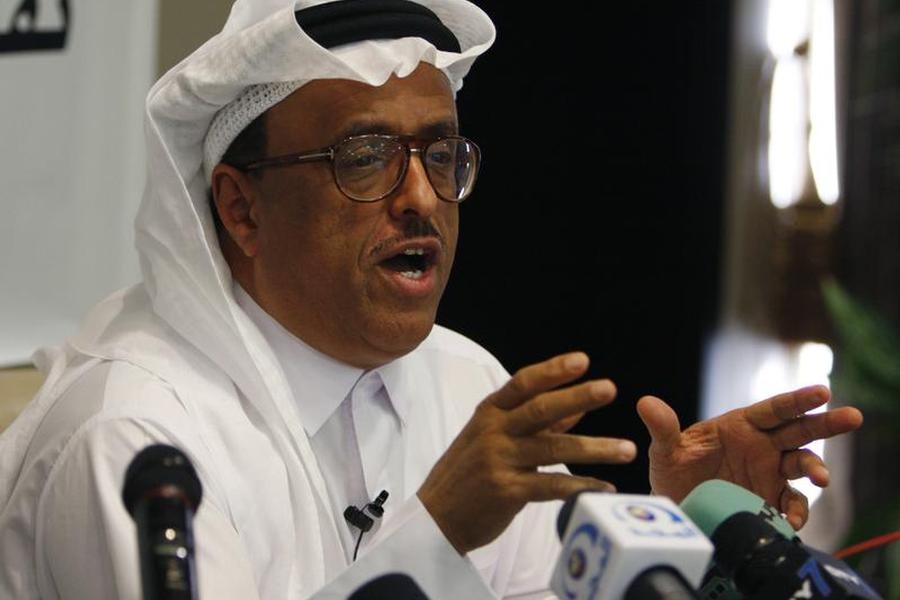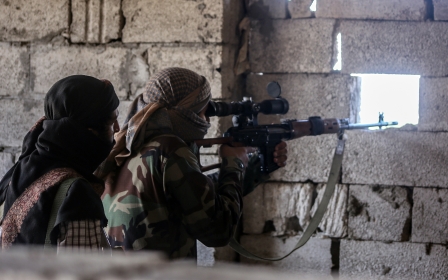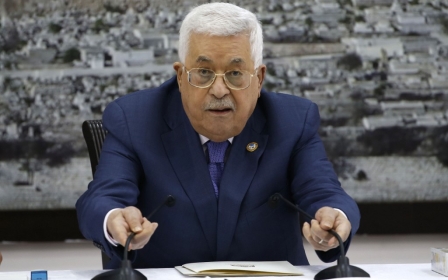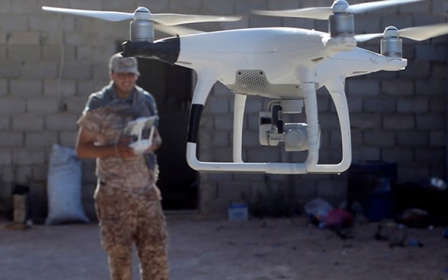Arabic press review: UAE officer accused of hinting at Hadi's assassination

UAE general hints at assassination of Yemeni president
A former Dubai police commander-in-chief attacked Yemen’s President Abd Rabbuh Mansour Hadi on Twitter, alluding to the possibility of his assassination.
Lieutenant-General Dhahi Khalfan is the most well-known security officer in the United Arab Emirates and is widely believed to have been an adviser to Abu Dhabi Crown Prince Mohammed bin Zayed since he left his post as police chief in 2013.
"There is no need to assassinate President Hadi as long as Ali Mohsen is a member of the Muslim Brotherhood," Khalfan wrote on Twitter, in reference to Hadi’s vice president.
A Yemeni official and a number of activists called the tweet a “serious threat”.
New MEE newsletter: Jerusalem Dispatch
Sign up to get the latest insights and analysis on Israel-Palestine, alongside Turkey Unpacked and other MEE newsletters
The Muslim Brotherhood is a banned organisation in the UAE, which has labeled it a terrorist organisation.
Khalfan also wrote in the same tweet that "the matter eventually lies in the hands of the vice president, a Muslim Brotherhood member", pointing out that the assassination of Hadi will lead to Mohsen’s ascension to the presidency.
Khalfan's tweet triggered a wave of responses and accusations that the UAE is seeking to assassinate Hadi after suffering a major setback in the oil-rich Shabwa province over the past three days.
"This is an official communication against Khalfan, who is inciting the assassination of His Excellency President Abd Rabbuh Mansour Hadi, may Allah protect him," said Mokhtar al-Rahbi, the adviser to Yemen’s information minister.
Rahbi stressed that "legal action will be taken against this dangerous and shameless incitement.”
Palestinian minister returns government money
The Palestinian finance minister has returned to the public treasury $81,600, an amount he had recently received from the government, London-based newspaper al-Quds al-Arabi reported.
Shukri Bishara returned the money in accordance with President Mahmoud Abbas's decision requiring ministers under former Prime Minister Rami Hamdallah's government, who had received unapproved salary increases and bonuses, to return the funds.
The prime minister's office, which received the statement of transfer, said that Bishara was the first to commit to returning the money. Some ministers promised to deliver the money within days, according to al-Quds al-Arabi.
Such a move highlights Abbas's dissatisfaction with the previous government headed by Hamdallah.
The Palestinian president ordered each minister to pay the amount needed in one instalment. He also decided to recover the money that the former prime minister and the 17 members of his government received as rent allowance, particularly the ones who have no proof of rent during that period.
Haftar general reveals UAE bombing campaign
Libyan websites have been circulating a video showing the confessions of one of the most prominent military commanders in General Khalifa Haftar’s army, after he was arrested by the Government of National Accord on Monday.
The commander of Gharyan Operations Room, Brigadier-General Fawzi Abu Harara, made the confessions during an interrogation about a failed attack on Tripoli, where Haftar has launched an offensive.
The commander said that the UAE air force participated in the military operations against the internationally recognised government in Libya, according to the video published by the news website Arabi21.
Abu Harara also revealed information about other leaders in Haftar's self-styled Libyan National Army who participated in the latest attack on Tripoli.
Pro-GNA forces announced Monday that they had repelled an attack by the LNA on the city of Gharyan, south of Tripoli, and had captured Abu Harara, the most high-ranking LNA military leader currently being held in custody.
* Arabic press review is a digest of reports that are not independently verified as accurate by Middle East Eye.
Middle East Eye delivers independent and unrivalled coverage and analysis of the Middle East, North Africa and beyond. To learn more about republishing this content and the associated fees, please fill out this form. More about MEE can be found here.




